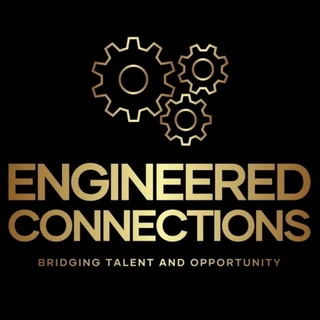The engineering landscape is rapidly evolving, driven by technological advancements and a heightened focus on sustainability. To stay competitive, engineers must adapt by acquiring a blend of technical prowess, leadership capabilities, and a commitment to continuous learning.
At Engineered Connections, we specialize in aligning talented engineers with leading employers across various sectors. If you’re aiming to advance your engineering career in 2025, here’s a breakdown of the essential skills that can set you apart.
1. Proficiency in Digital Tools & Software
Modern engineering roles demand familiarity with advanced digital tools that enhance design, analysis, and project management.
Key competencies include:
- Building Information Modeling (BIM): Crucial for civil and structural engineers involved in infrastructure projects.
- Computer-Aided Design (CAD) Software: Expertise in tools like AutoCAD, SolidWorks, and Revit is essential for mechanical, electrical, and structural design.
- Programming & Automation: Languages such as Python, MATLAB, and C++ are increasingly valuable, especially in manufacturing and robotics.
- Data Analytics & AI Integration: The ability to interpret complex datasets and leverage AI for problem-solving is becoming a standard expectation.
2. Project Management & Leadership
Beyond technical skills, employers value engineers who can lead projects and communicate effectively with diverse stakeholders.
Essential skills encompass:
- Risk Assessment & Mitigation: Ensuring projects are delivered on time and within budget.
- Agile & Lean Methodologies: Implementing efficient workflows and continuous improvement practices.
- Contractual & Commercial Awareness: Understanding contracts like JCT and NEC is vital for project execution.
- Stakeholder Communication: Translating complex technical concepts for clients and cross-functional teams.Wikipedia
3. Adaptability & Innovative Problem-Solving
The dynamic nature of engineering challenges requires professionals who can adapt and devise innovative solutions.
Employers look for engineers who:
- Approach problems with critical thinking and creativity.
- Collaborate effectively in multidisciplinary teams.
- Stay abreast of industry trends and commit to lifelong learning.Randstad+16Time+16The Guardian+16arXiv+4Teal+4Business Insider+4
4. Certifications & Ongoing Professional Development
Obtaining relevant certifications not only validates your expertise but also demonstrates a commitment to professional growth.
Notable certifications include:
- Chartered Engineer (CEng): A prestigious qualification recognized by the Engineering Council in the UK.
- Project Management Certifications: PRINCE2 or PMP certifications are advantageous for those in project leadership roles.
- Health & Safety Certifications: IOSH or NEBOSH certifications are essential for roles focused on safety and risk management.
- Specialized Certifications: Credentials like BIM Level 2 Accreditation, Certified Energy Manager (CEM), or Six Sigma Green/Black Belt enhance specialized skill sets.
How Engineered Connections Can Propel Your Career
At Engineered Connections, we understand the evolving demands of the engineering industry. Our expertise lies in connecting skilled engineers with top-tier employers who value their unique skill sets and professional aspirations.
Our services include:
- Personalized career consultations to align opportunities with your goals.
- Access to exclusive job openings not advertised publicly.
- Guidance on skill development and certification pathways.
Ready to elevate your engineering career? Reach out to us today and discover how we can assist you in navigating the next steps of your professional journey.
